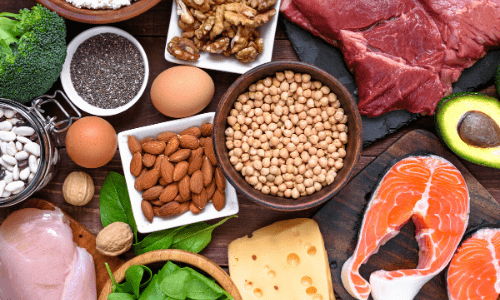
What are Macros in Food?
Diet trends are ever-evolving, and one of the latest questions on the minds of those looking to clean up their diet include, “what are macros in food?” Before diving into the details on how you can help your customers understand what macros are and how they can monitor them for their individual health needs, you must have a solid understanding yourself.
What are Macros?
Macro is a term short for macronutrients, which are different nutrients that are found in the foods you eat and are required as a part of a healthy diet. While there is a standard for how many macros that individuals need, sometimes specific individuals need varying ratios in order to establish a system that works for their body’s needs.
There are three types of macros, and those include carbohydrates, fats, and proteins. Each of these macros is necessary to create a healthy, well-balanced diet.
More and more people are focusing on counting these macros instead of counting their total calorie intake each day because it is now widely accepted that it’s not necessarily all about how many calories you eat in a day, but what types of calories you are eating. So, it’s essential to take a deeper dive into each of these macros to better understand how they affect the body.
Carbohydrates
Carbohydrates are often referred to as carbs for short, and most people understand them as sugars. While that’s not untrue, there is so much more to them than simply being sugars. They are also comprised of starches and fibers.
Since most types of carbs are broken down into glucose, people instantly believe that they are only consuming sugars when they eat bread, pasta, and fruits. What’s essential to understand here is that your body does require this glucose to function correctly. Your body will either use this glucose for immediate energy, or it will go ahead and store it as glycogen in your liver and muscles to burn later when your energy reserves are running low.
As for how many calories are found in a single gram of carbs, it breaks down to four calories per gram of carbs. Despite what people may think, carbs should only be limited for those with particular health concerns, such as diabetes and other major health issues. For the average individual, major health organizations suggest that you should consume 45-65% of your daily calories from carb options.
Fats
Another term that tends to scare off individuals is fats. When people think of fat, they often get the image of a big glob of yellow matter in their minds, which is understandable since that image is so often thrown around to advertise for weight loss supplements. The issue here is that fats are still essential to a healthy and balanced diet, just as carbs are.
Even for those who understand how important this macro tends to be, many individuals are still a bit intimidated by fats because they are the macro with the most calories associated with them. For every gram of fat, there are nine calories.
While there are some diet trends that focus on increasing fats to help people lose weight, most trends focus on cutting back on the total number of fats consumed in the day. What people neglect to mention is that there are plenty of healthy fats that can be included within a healthy diet, including:
- Oils
- Avocados
- Nuts
- Fatty fish
- Meat
The average individual should be consuming a total of 20-35% of their daily calories from fats as these macros help with not only energy but other critical functions, such as nutrient absorption, body temperature regulations and hormone productions.
Proteins
Diet trends focus heavily on increasing protein macros, despite the fact that the daily recommended calorie intake for these macros ranges from 10-35%. Yes, it’s true that some people can and will benefit from a higher or lower protein intake, however, this should be monitored carefully, as should your carbs and fat intakes.
Proteins are a vital macro because they help with not only immune functions but the building of tissues, enzymes, hormones, and cell signaling. The fact that they help with tissue building is what many athletes and fitness fanatics focus so heavily on, especially those looking to bulk up.
If you are unsure of what your proper protein intake should be or are struggling to better define “what are macros in foods,” than you should consult either your physician or a certified nutritionist. This is because protein recommendations will vary quite a bit depending on each individual’s body composition, overall health, personal goals and more.
How the Food and Beverage Industry Can Help the Public Understand the Question, “What are Macros in Food”
As someone who works in the food and beverage industry, you’ll, of course, want to have the right kitchen equipment, such as a walk-in refrigerator or walk-in cooler. However, having a solid understanding of macros and being able to answer the question, “what are macros in food,” will better enable you to address these topics with your customers.
If they know they can turn to you for the answers to these popular questions, you will demonstrate that you are more invested in their health and wellbeing, not just selling them a product. In fact, those who have even a basic understanding of these topics will not only come off as more knowledgeable to their customers and as a reliable source of information, which may encourage them to return to your establishment. Something worth considering, especially as more and more people start to become health conscious.
CKitchen Can Help Set You Up For Success
Do you have the knowledge to get your food and beverage services up and running, but aren’t quite sure where to start when it comes to quality commercial kitchen and restaurant equipment? Then let the team at CKitchen help!
With 35 years of experience in the industry, we know just what you need to set you up for success.
Have questions? Then give us a call at 1-800-555-0666 or use our online chat features to speak with someone today!





